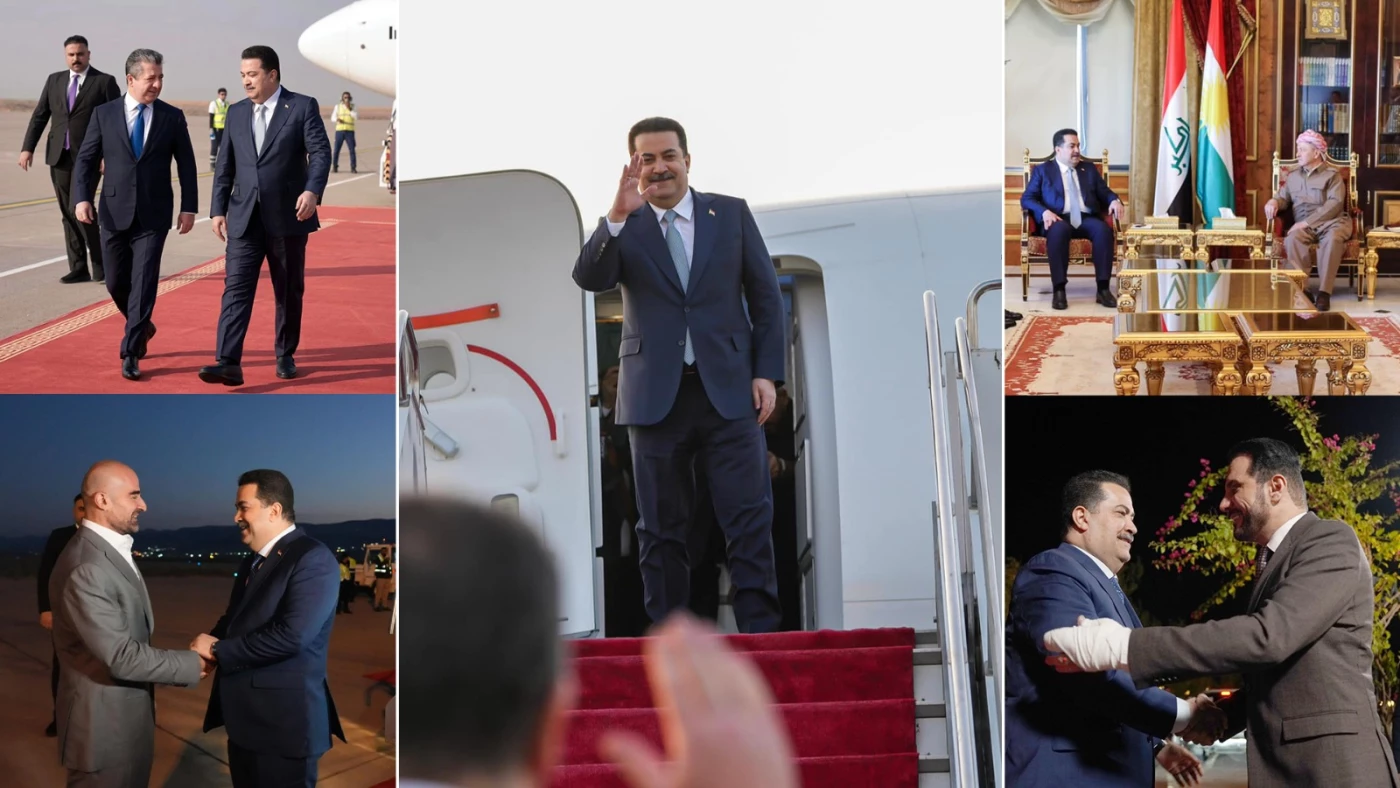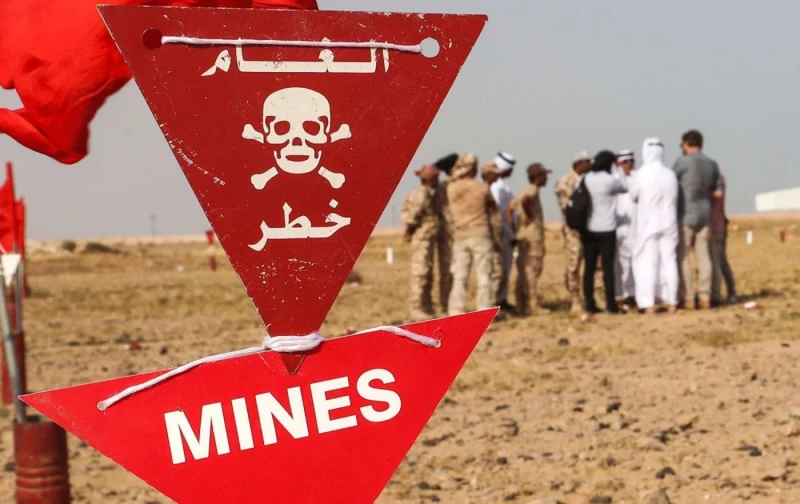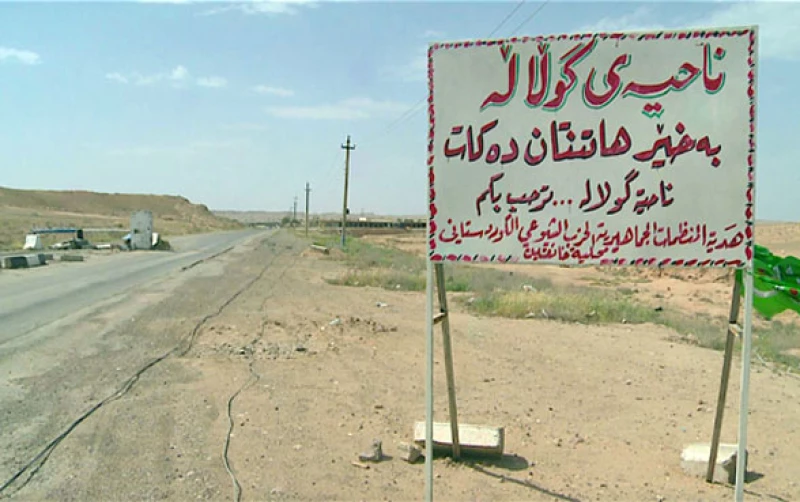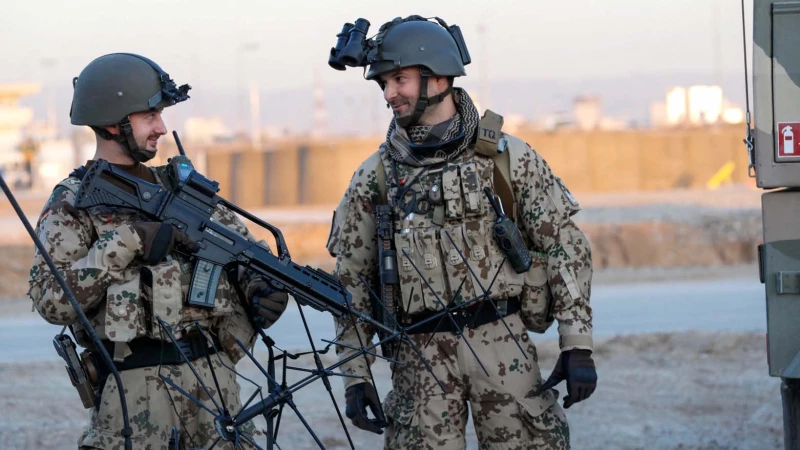ERBIL, Kurdistan Region of Iraq - Iraqi Prime Minister Mohammed Shia’ al-Sudani concluded his one-day trip to the Kurdistan Region on Wednesday evening after holding meetings with several of the Region’s political party leaders and urging a quick formation of the Region’s next cabinet.
Sudani arrived in Erbil on Wednesday morning where he was received by Kurdistan Region Prime Minister Masrour Barzani. The two discussed a range of topics including the upcoming population census, budgetary issues between Erbil and Baghdad, as well as regional security.
The Iraqi premier congratulated the Kurdish premier on the success of the recent parliamentary elections, highlighting the importance of the Kurdistan Region’s stability as a “crucial foundation” for that of all of Iraq.
Sudani stressed the need for the quick formation of the next government to help “enhance coordination between the Regional Government and the federal government.”
The Kurdistan Region held parliamentary elections on October 20, following a two-year delay, in which the Kurdistan Democratic Party (KDP) emerged as the clear victor, scoring over 400,000 votes more than its nearest competitor, the Patriotic Union of Kurdistan (PUK).
The Iraqi prime minister then met with Kurdistan Region President Nechirvan Barzani where they discussed similar issues.
Sudani reaffirmed his support for dialogue between the political parties in the Kurdistan Region toward forming the new cabinet. Nechirvan Barzani also praised Sudani for his support and that of other Iraqi parties in conducting the Kurdistan elections, and “stressed the importance of strengthening cooperation between Erbil and Baghdad in the next phase.”
The importance of forming the next Kurdistan Regional Government (KRG) was also highlighted in Sudani’s meeting with President Masoud Barzani, leader of the ruling KDP. Sudani said the success of the elections will have a positive reflection on Iraq as a whole, expressing his willingness to provide support in the talks between the parties to expedite the government formation process.
The KDP’s landslide victory in the polls guaranteed the ruling party 39 seats in the parliament.
Sudani also met with Kurdistan Justice Group (Komal) leader Ali Bapir while in Erbil, highlighting the importance of combined efforts and strengthening cooperation and coordination between the political in addressing the challenges facing Iraq and the Kurdistan Region.
Komal, who gained three seats in the Kurdistan elections, has announced that they will boycott the parliament and refused to join the next government, citing alleged fraud in the polls.
The Iraqi premier concluded his visit to Erbil by meeting with representative of other political parties and components, emphasizing the need to expedite the processs of forming the next KRG cabinet and for the newly-elected parliament to commence its duties in order to serve the interests of the people.
Sudani then flew to Sulaimani where he was received by PUK leader Bafel Talabani. Talabani expressed his gratitude for Sudani’s “unbiased” stance and support for the Kurdistan parliamentary elections.
“The Prime Minister stressed that the biggest victory is represented by the broad participation in the elections, which is an important message that the political forces must not squander,” read a statement from Sudani’s office, adding that “the winning forces have another entitlement represented by the understandings to form the government, which we hope will be accomplished quickly.”
The PUK gained 23 seats in the October 20 elections, reestablishing its position as the second party in the Region.
The Iraqi premier then met with New Generation Movement (NGM) leader Shaswar Abdulwahid, congratulated him on the electoral success, and emphasized the necessity of meeting the people’s needs to “enhance their trust in the electoral process.”
NGM came third in the parliamentary elections after securing 15 seats on the legislature.
Sudani also met with Kurdistan Islamic Union (KIU) leader Salahaddin Bahaaddin, and National Stance Movement (Halwest) leader Ali Hama Saleh in Sulaimani, echoing similar remarks, before concluding his trip and traveling back to Baghdad.
Halwest has repeatedly rejected the results of the elections, claiming that the voting machines have been tampered with. The KIU has not had any objection to the results but already announced they would not join the government.



 Facebook
Facebook
 LinkedIn
LinkedIn
 Telegram
Telegram
 X
X


